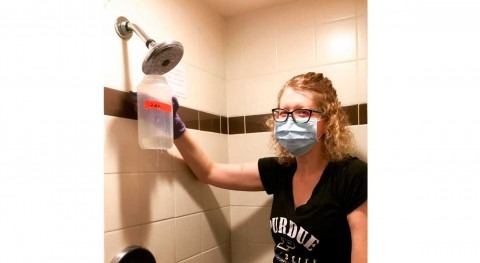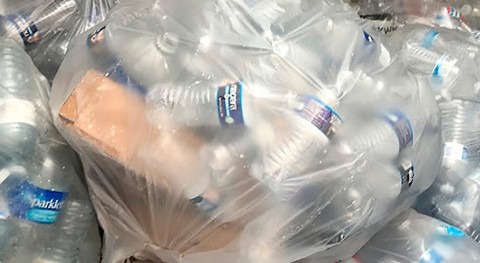The same chemical concerns found at hundreds of military training sites around the United States are now being raised at airports. It is an issue that is in the spotlight through the upcoming movie “Dark Waters.”
The compounds of concern are called poly- and perfluoroalkyl substances (PFAS). They include perfluorooctanesulfonate (PFOS), perfluorooctanoic acid (PFOA) and other perfluoroalkyl acids (PFAAs) – of which one or more have been linked to cancer, thyroid dysfunction, liver disease, immune system impairment, and other serious medical concerns. The compounds also are found in contaminated drinking water.
“This issue is in the spotlight now thanks to the films “The Devil We Know” and “Dark Waters,’” said Linda Lee, a professor of agronomy in Purdue’s College of Agriculture. “Our approach is different from current technologies, which are focused on capture and not destruction. We target compound destruction with a design that has potential to be used as part of a permeable reactive barrier underground to eradicate these compounds in groundwater to keep them from spreading.”
.jpg)
Purdue University technology targets compound destruction with a design that has potential to be used as part of a permeable reactive barrier underground to eradicate certain compounds in groundwater to keep them from spreading. (Purdue Research Foundation image/Oren Darling)
Lee is an authority on the compounds. She has developed patented technology to address the concerns and has received millions of dollars in federal funding to study these compounds and create new ways to eliminate the substances.
“This is a significant problem because these compounds, which are found in our blood, drinking water, homes and products, do not degrade naturally,” Lee said. “Our team has patented technology involving the use of nickel and iron nanoparticles synthesized onto activated carbon to capture, attack and destroy the compounds.”
PFAAs and PFOSs are found at more than 600 military training sites where firefighter training involved the use of PFAS-containing foams. They also are found at airports, which use similar chemical foams to put out fires.
In September, Lee’s team received part of a $6 million science to achieve results grant from the Environmental Protection Agency to address the issue of the compounds ending up in waste streams and eventually drinking water. The latest award comes after the team received earlier funding from the National Science Foundation and the Department of Defense. The team’s recent work also has included international partnerships in Pakistan through The National Academies of Sciences, Engineering and Medicine.














